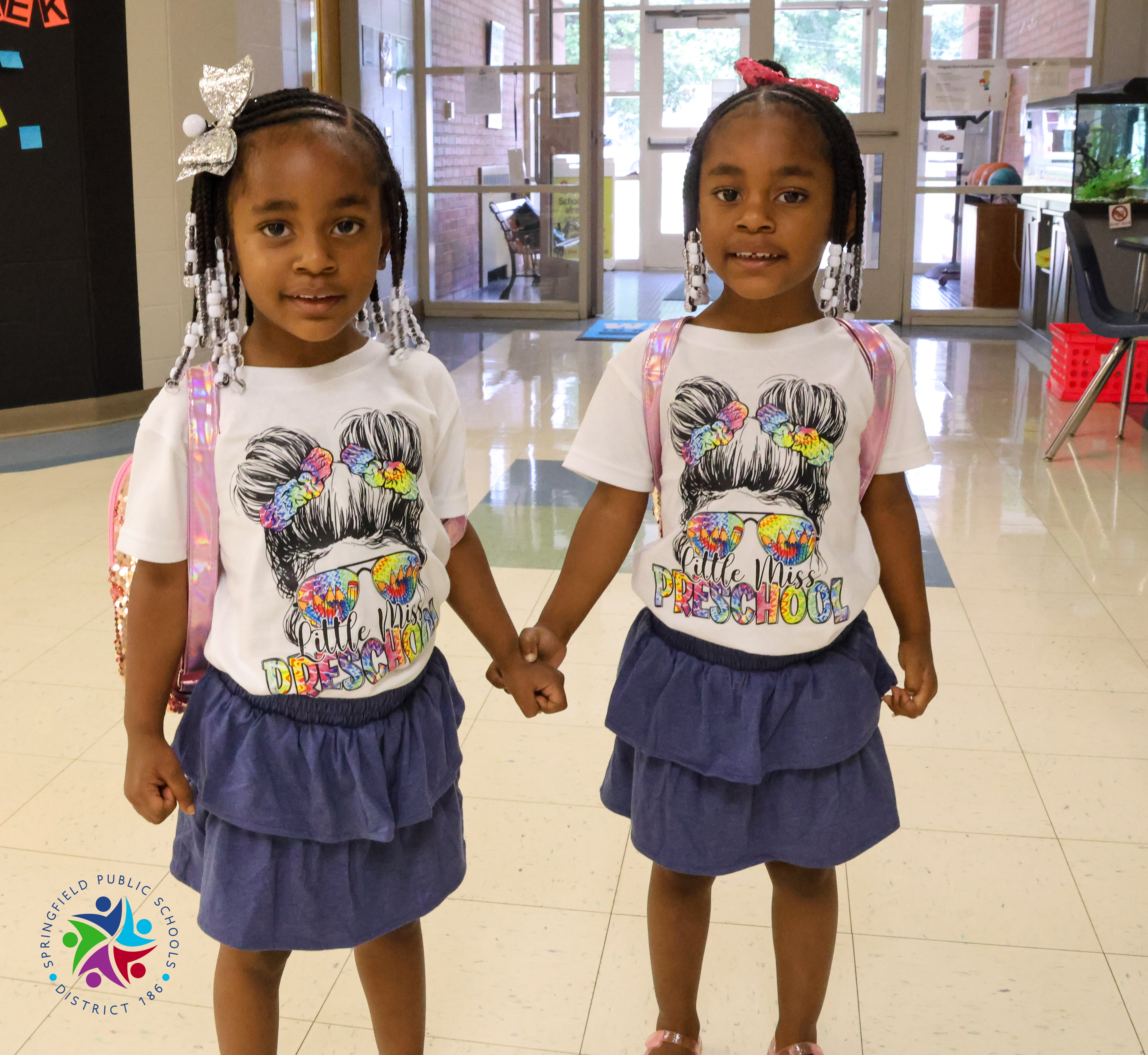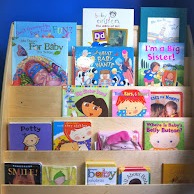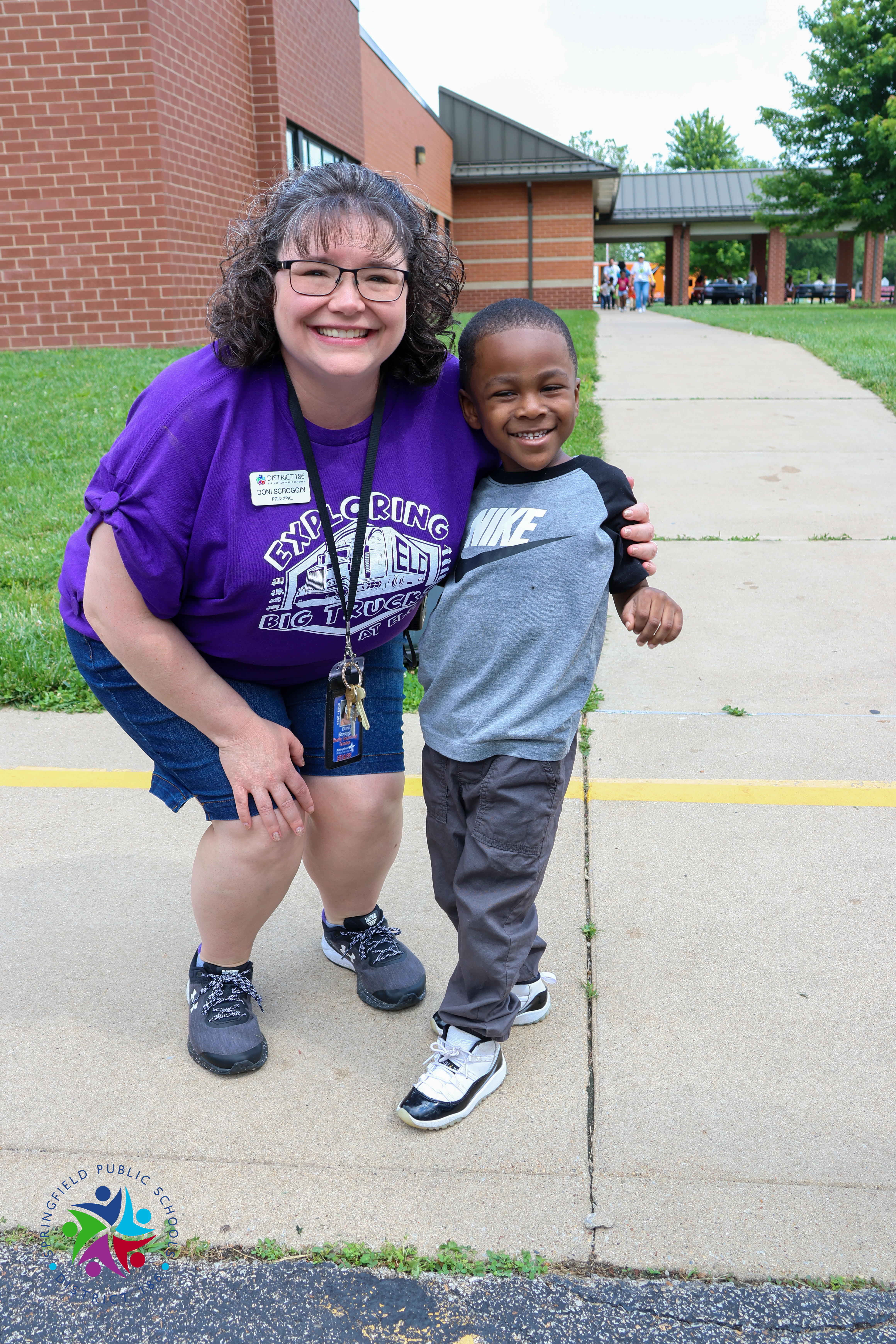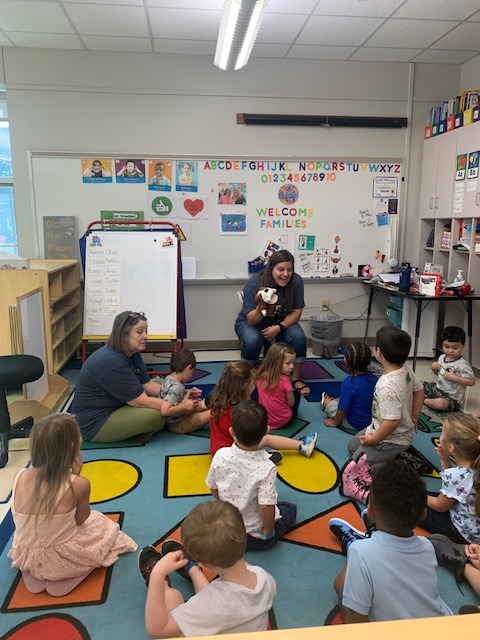Toys, books, and learning activities are available for check out by families and children enrolled in the prekindergarten program. The library is located at the Early Learning Center, 2501 S. First Street. We welcome visitors of enrolled students to the library before each class session. Topics range from fun learning activities to use with your child at home to more serious subjects such as discipline, child development, and a variety of social issues.
PRE-KINDERGARTEN
Program Overview
Springfield Prekindergarten is a District 186 Preschool for All program for children ages 3-5 years old, funded through the Illinois State Board of Education. It is the mission of prekindergarten to provide a high quality, developmentally appropriate educational program that helps preschool children develop skills that will enable them to be successful in kindergarten and encourage them to become eager, life long learners. In addition, all students within our program wil have access and supports necessary to fully participate both socially and academically with their peers.
Our philosophy is based on the belief that a child's learning is best accomplished through active, purposeful play. We believe that a positive self belief system is imperative to a child's successful entrance and continued learning in the school environment. We also believe that family relationships are very important to the educational process. When we are working together, we are able to create optimal learning environments for children.
Enrollment in prekindergarten begins with a Developmental Screening or a referral from Early Intervention. To learn more about Community Preschool Screenings, call the Prekindergarten Program Office at the Early Learning Center, 217-525-3365.
Prekindergarten classrooms are located at the Early Learning Center and Ridgely Elementary school.
Pre-kindergarten Screening
The purpose of Developmental Screening is to assess children's speech and language development, problem-solving skills, fine and gross motor skills, and social skills. Any family living within District 186 boundaries can request a developmental screening or "learning check up" of their child's age appropriate skills. At the time of screening, families will be asked to provide their child's original Certified Birth Certificate to verify the child's age. Families will also be asked to provide proof of household income or any public benefits.
A Developmental Screening must take place prior to a child's enrollment in Springfield prekindergarten programs. Screening appointments are scheduled each month throughout the school year. To schedule an appointment call the Prekindergarten program office at 217-525-3365.
If you have concerns for your child's development such as: delayed speech and language, concerns with their pre-readiness/school skills, or if your child has a diagnosis/medical condition that makes it difficult for them to learn, please contact Kristin LaMontagne to schedule a private screening, 217-525-3060.
Enrolling in Pre-kindergarten
Children entering the program must complete a Developmental Screening or Early Intervention transition. Students that qualify for the program must provide a certified birth certificate, proof of family income, and will be placed in classrooms as space is available.
Students who are currently receiving services through the Sangamon County Health Department Early Intervention program are automatically referred to the District 186 Prekindergarten Program. Transition meetings are conducted between Early Intervention and District 186 to complete that transition. Questions regarding enrollment in prekindergarten following an Early Intervention experience can be directed to the EI Service Coordinator or the District 186 EI Transition Specialist at 217-525-3060.
Typical Day in Pre-Kindergarten

Children attend two and one half hour pre-kindergarten sessions five days a week, Monday - Friday.
Arrival/Welcome: Children are greeted individually and backpacks are checked for important information from the family.
Group Time/Circle Time: All children and teachers come together to participate in early literacy and math activities. Concepts of print, vocabulary, alphabet knowledge, phonological awareness, communication and problem solving skills are promoted.
Snack Time: Children wash their hands and are offered nutritious breakfast or lunch type foods at snack. In a pleasant, social atmosphere, teachers sit and enter into conversations with children, encouraging them to talk about events or the day and topics of interest to the children.
Discovery/Work Time: Children choose from activities in the classroom that include small group instruction, dramatic play, library, writing, blocks, art, sand/water tables, science, computers and snacks. Shared reading and writing are emphasized throughout the day.
Gross Motor Activities: Children come together to participate in physical activity that promotes large muscle development using equipment in the gym or outdoors.
Clean Up: Children learn when it's time to stop activities, independently putting materials away using picture and word cues provided by teachers and classmates.
Closing Group/Goodbye: Children and teachers come together to review the day's activities. Books, music, chanting, rhyming, and other language activities are used to reinforce learning.

Toy & Book Lending Library
Family Resources
Frequently Asked Questions
Parent/Family Involvement
Staff
Kevi Jackson
PreK Programs Coordinator
kevij@sps186.org
525-3365
2501 S. 1st
Springfield, IL 62704
Leanne Haage
Screening and Placement Specialist
Lhaage@sps186.org
525-3365
Angel Claycomb
PK Administrative Assitant
aclaycomb@sps186.org
525-3365
To learn more about Community Preschool Screenings call 217-525-3365.


